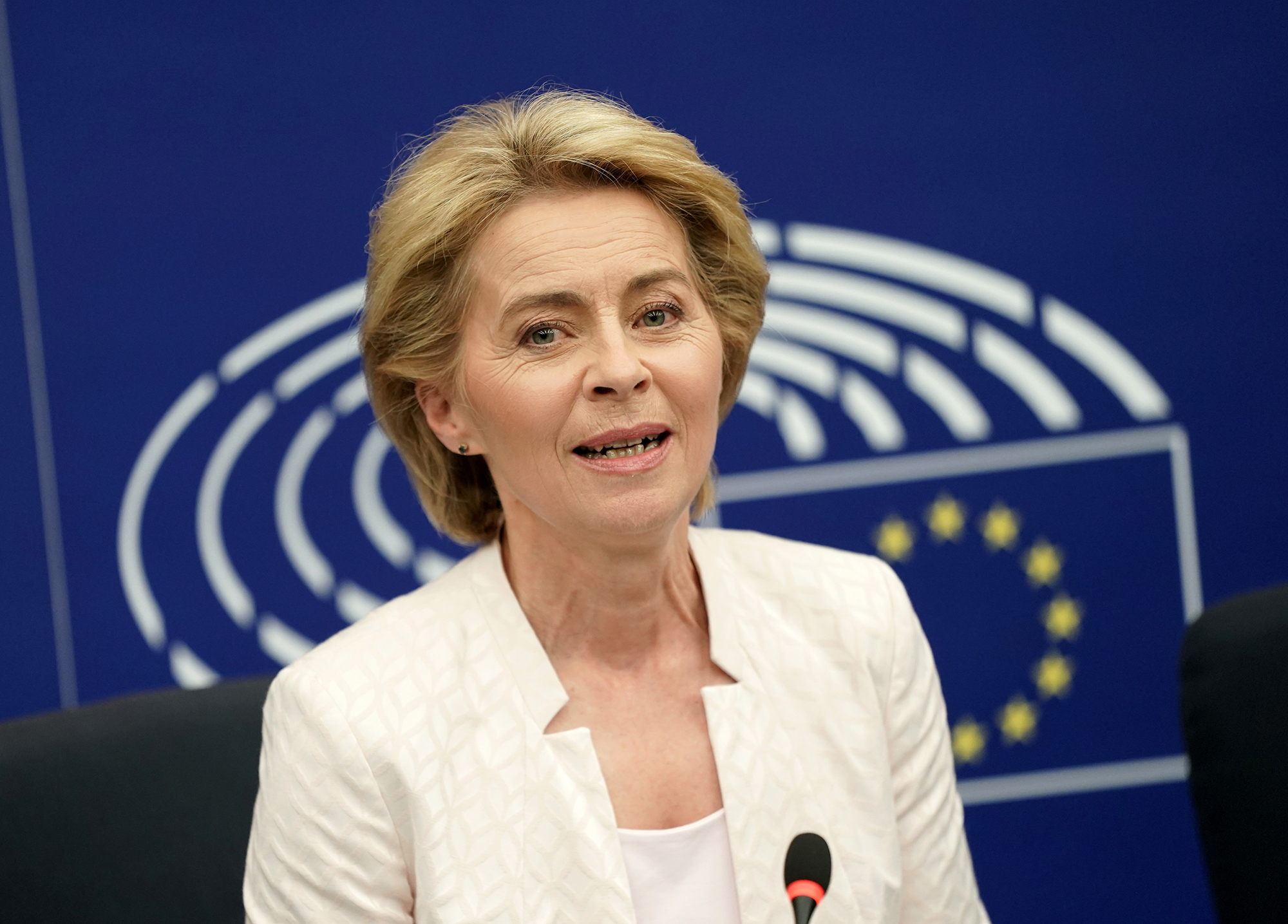Von der Leyen hails EU enlargement as ‘catalyst for progress’

European Commission President Ursula von der Leyen on Wednesday (13 September) made the case for enlargement as a ‘catalyst for progress’ of the bloc but failed to put forward concrete targets.
“In a world where size and weight matters, it is clearly in Europe’s strategic and security interests to complete our Union.” Von der Leyen told EU lawmakers in Strasbourg.
Von der Leyen’s speech comes after Russia’s full-scale invasion of Ukraine revived the issue of the bloc’s enlargement after almost a decade of stagnation.
But despite the revival of enlargement prospects, EU member states have so far been moving slowly on their own reform debate, which many of them say should come either before or hand-in-hand with any future accession, in order to make an enlarged Union more streamlined and functional.
EU leaders are expected to hold a first substantial discussion about enlargement in early October, after several rounds of talks in various formats earlier this year, when they meet for an informal summit under the Spanish EU Council presidency in Granada.
EU member states have the final say on admitting new members to the bloc, though this usually follows political directions given by the European Commission, which recommends whether an EU hopeful should move to the next stages in the accession process.
After the EU executive’s regular annual enlargement progress reports due in October, meant to assess the reform progress of EU hopefuls, EU leaders are expected to discuss whether to open EU accession talks with Ukraine and, potentially, Moldova in December.
“We have seen the great strides Ukraine has already made since we granted them candidate status. And we have seen the determination of other candidate countries to reform,” von der Leyen said in Strasbourg.
“The future of Ukraine is in our Union,” she added.
But she struck a more cautious tone on another hopeful, Georgia, which EU officials say has slid back on its path to membership. “I know how important the EU perspective is for so many people in Georgia,” she said, without clearly mentioning the prospect of Tbilisi joining one day.
In her speech, Von der Leyen struck a cautious tone and steered clear of any debate about timelines and the size of the bloc’s future expansion, which is expected to have major internal consequences for the bloc.
She made no reference to European Council President Charles Michel’s suggestion earlier this month that Western Balkan and other EU candidate countries, as well as the EU itself, should be ready for enlargement by 2030, nor did she mention an explicit number of possible new members.
That date was quickly dismissed by both proponents of extending the bloc – a camp that includes Poland, the Baltics and Austria – and those much more cautious about the idea – such as the Netherlands and Denmark.
Germany is usually somewhere between the two and EU officials say France seems to have warmed to the idea, joining Berlin from the opposing camp.
While largely stressing the Commission’s usual enlargement talking points, saying that “accession is merit-based” and her executive will “always defend the principle”, von der Leyen, however, largely fell short of providing finer details of what EU expansion would mean in practice.
Speaking to the EU lawmakers, she, however, said she had tasked the Commission with coming forward with a series of pre-enlargement policy reviews to prepare for the addition of new members, including an examination of how EU institutions would look in an enlarged EU.
Her comments, thus, seemed to open the door for a possible EU treaty change, if needed.
EU leaders could potentially agree by December to some broad parameters for EU reform needed to prepare the bloc for future accession rounds.
While several EU lawmakers have pitched a far-reaching proposal for treaty change, many EU member states have so far been opposed to the idea.
Addressing doubts about whether an enlarged EU would be feasible, Von der Leyen said the “next enlargement must also be a catalyst for progress”.
But she was not opposed to the idea that the bloc could proceed with enlargement even without a change to the EU treaties.
“We cannot — and we should not — wait for Treaty change to move ahead with enlargement. A Union fit for enlargement can be achieved faster,” she said.